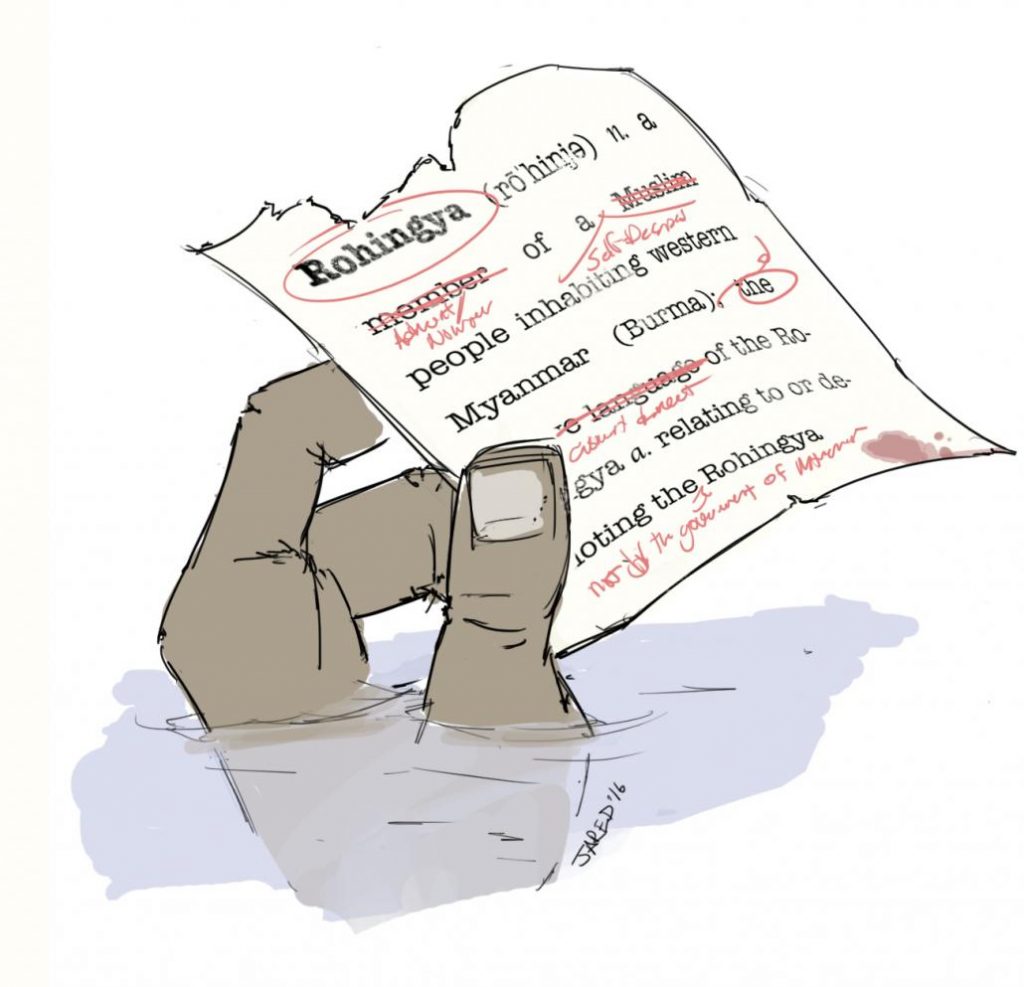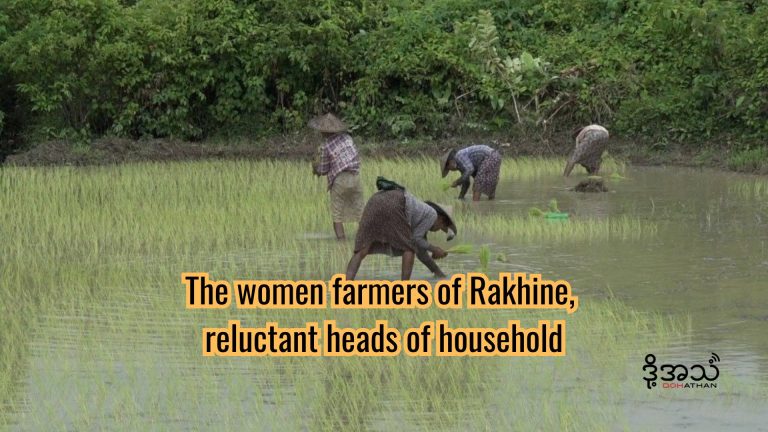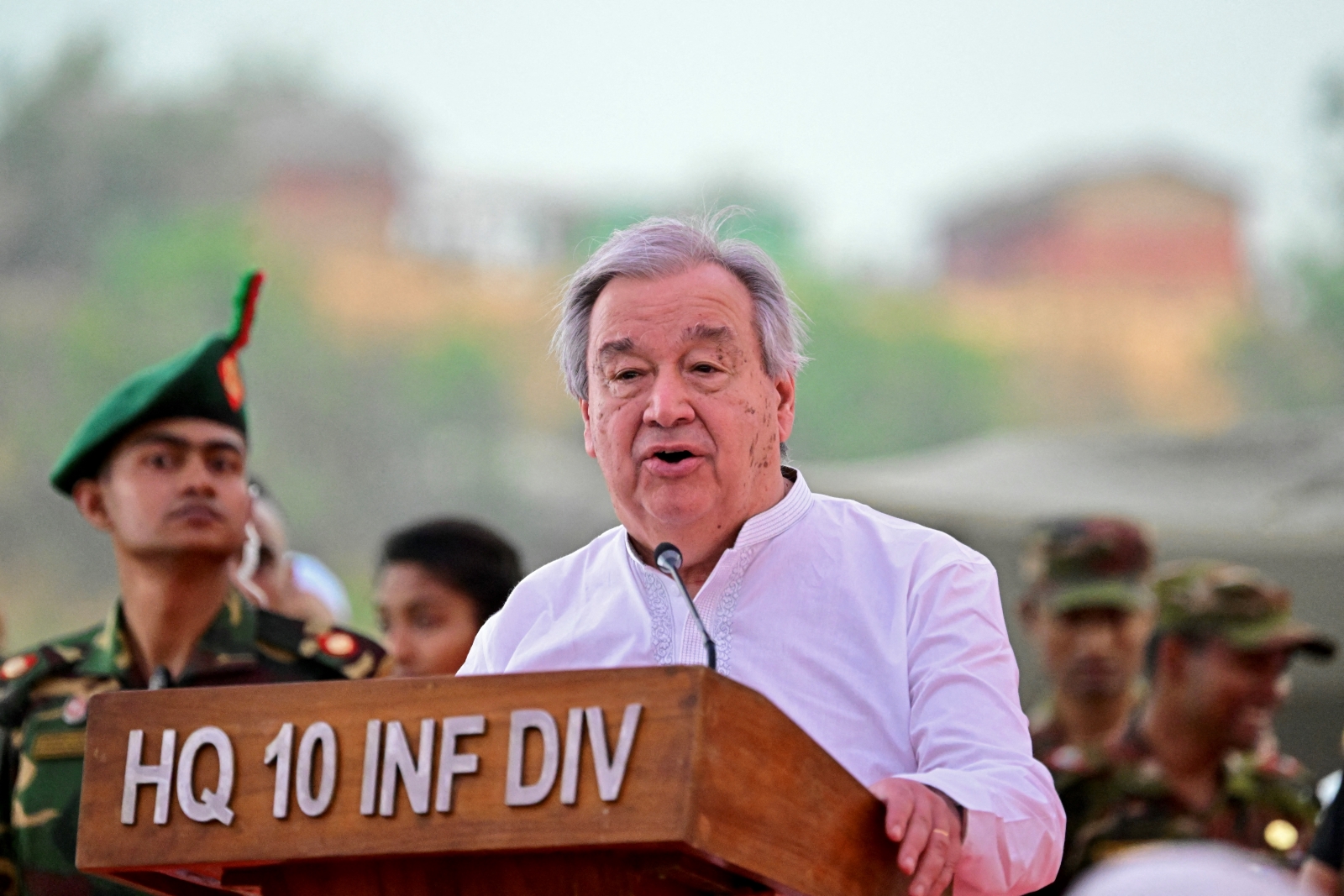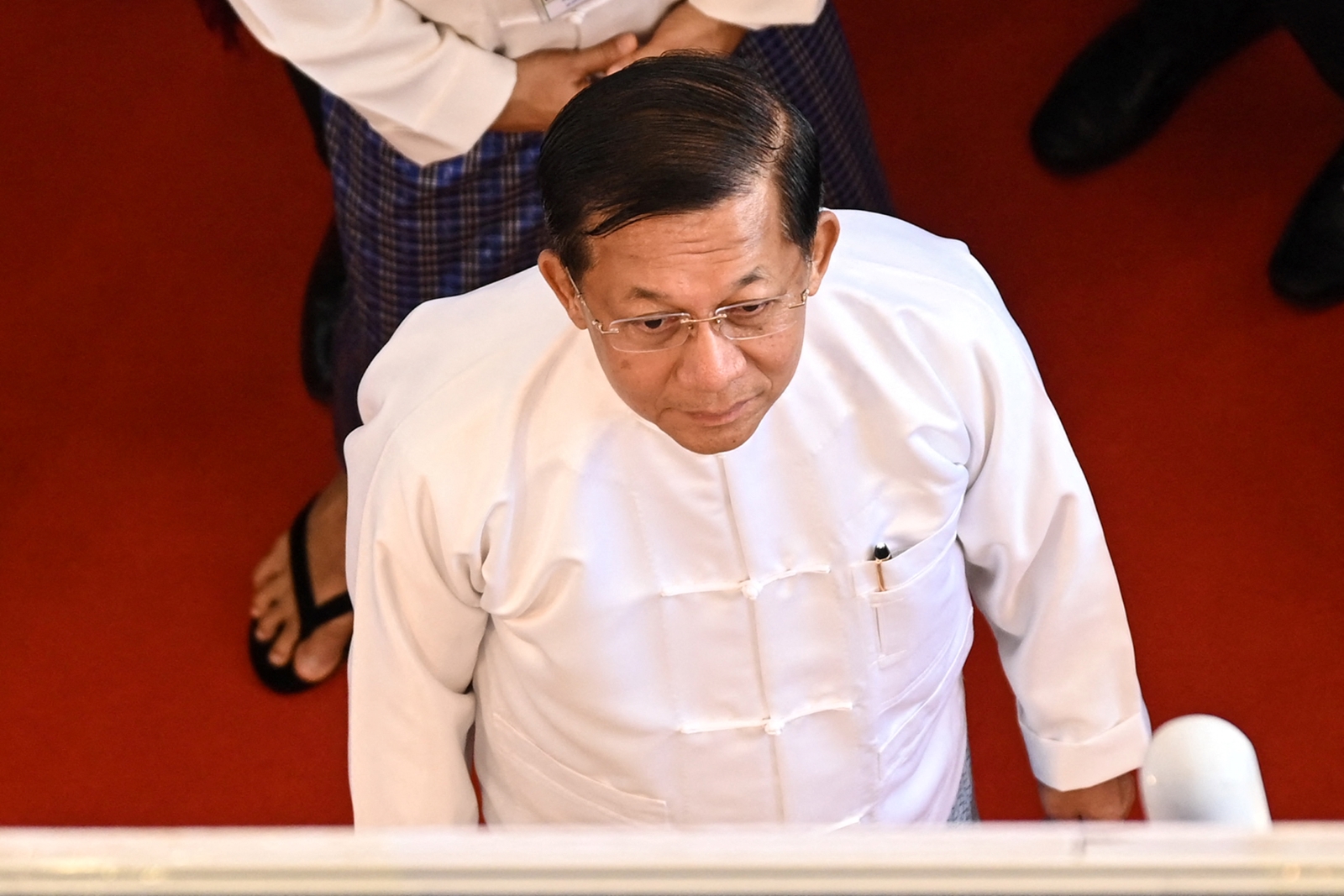We support Daw Aung San Suu Kyi’s call for practical solutions instead of rhetoric for the problems plaguing Rakhine State.
RAKHINE State has been the tragic counterpoint to all the progress made in Myanmar over the past five years. The numbers are well known: more than 200 dead in communal violence; 140,000 initially displaced, of whom only 20,000 have been able to leave IDP camps; approximately 1 million stateless. Both Buddhist and Muslim communities remain desperately poor, with Rakhine State by some measures the most impoverished in the country. They are also deeply divided, with few immediate prospects for reconciliation.

Jared Downing / Frontier
But amid all the complexity – governance, nationalism, poverty, religion, migration, international relations and, more recently, ethnic insurgency – too much attention has been given to the issue of ethnic identity. The Rohingya/Bengali argument has sucked the air out of more worthy and important discussions on the future of the state. In many ways it reflects the equally unhelpful Burma vs Myanmar debate of years gone by.
For media organisations that value impartiality but also respect a person’s right to self-identify – a form of freedom of expression, something that we inherently hold dear – the issue of nomenclature is also a quandary. Because of the meaning invested in both terms, adopting one as a default will be perceived as choosing a side, of placing one community’s views above those of the other.
At Frontier we have grappled with this for some time. Yet we were struck by the clarity and pragmatism of State Counsellor Daw Aung San Suu Kyi’s remarks during her press conference with US Secretary of State John Kerry. “What we want is to find a practical solution. We are not interested in rhetoric,” she said. “We are not trying to say that any particular stand with regard to nomenclature is better than another. What we are saying is that there are more important things for us to cope with than just the issue of nomenclature.” She should be applauded for her stance and desire to find a workable middle ground.
As Aung San Suu Kyi also noted, the wishes of both communities need to be taken into account and treated with sensitivity. Internationally, the Rakhine are too often cast as the villains. Yet this overlooks that they have also suffered greatly at the hands of the central government, and unless their desires are also acknowledged and respected there is little prospect for a genuine resolution to the state’s challenges. Similarly, local stakeholders need to listen more clearly to what the Muslim community is really saying; their requests are far less radical than what they are often made out to be.
Support more independent journalism like this. Sign up to be a Frontier member.
This, of course, does not mean accepting every viewpoint. Far from it: in our own tolerance, we should neither encourage nor accept intolerance and bigotry from others. But it does mean we should listen to and consider all sides.
Media organisations cannot avoid the question of ethnic identity, but they can be thoughtful in their choice of language. Accordingly, Frontier avoids using the term Rohingya gratuitously. However, applying an ethnic label – in this case Bengali – to a community that rejects that label is a violation of the values that we believe in.
Inevitably, there are times when repeated usage of both terms is necessary, such as when the issue of ethnic identity is being discussed. In these cases, we acknowledge the views of both sides: that many Muslims in Rakhine State self-identify as Rohingya, but this term is not accepted by the government or most Myanmar people. But where possible, we will endeavour to use less emotive terms and avoid inflaming tensions.
As a media organisation, we care about open debate and discussion. Another element of the tragedy over ethnic identity is that those who disagree with your preference on nomenclature will inevitably stop reading due to perceptions of bias. As a result, they miss out on reports from the ground in Rakhine State that could inform, develop and challenge their views. This inhibits the flow of information and ideas on one of the most important challenges for Myanmar’s future as a peaceful, stable and prosperous nation, putting a solution that much further out of reach.
This editorial originally appeared in the July 14 issue of Frontier.







